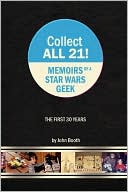Six SFWA Candidates and One Facepalm
My ballot for the 2012 SFWA Officer Election showed up this week. Some of the decisions are pretty straightforward. John Scalzi is running unopposed for President, and overall I’m fairly happy with the work he’s done for the organization. Bud Sparhawk is also running unopposed for Treasurer. He’s got experience and a reasonable platform I can support.
There are two candidates for Secretary: Michael Burstein and Ann Leckie. I haven’t yet made up my mind here.
And then there are the Vice-President candidates, Rachel Swirsky and Lou Antonelli.
The platforms of the various candidates are posted in the SFWA Forums (you have to be a member to log in and read them). Let me say up front that I appreciate anyone’s willingness to step up and volunteer for a tremendous amount of work, work that can be difficult, time-consuming, and often thankless.
With that said, I’d like to publicly support Rachel Swirsky for VP.
Both Swirsky and Antonelli bring impressive resumes. While I was leaning toward voting for Swirsky already, what solidified my decision tonight was an exchange in Antonelli’s blog where he had posted his platform. Author Nisi Shawl expressed being offended by his use of the phrase “Canine-Americans” to describe his dogs. Antonelli responded by calling her concerns esoteric, politically correct bullshit, and saying she takes herself way too seriously.
I’m not posting this with the intention of dropping the internet on Antonelli’s blog. But … well, I guess I take stuff way too seriously too.
To start with, I get really sick of white folks lecturing people of color on what they should and shouldn’t take offense to when it comes to issues of race and ethnicity. If you don’t get it, that’s one thing. I don’t believe there’s any shame in saying “I don’t understand.”
But this is a condescending, insulting, and flat-out shitty way to respond when someone calls you on something.
I get that it’s hard. I’ve been called out on stuff before too. Sometimes I’ve agreed, sometimes I haven’t understood, and sometimes I’ve thought about it and decided I didn’t agree. None of those responses require you to disrespect or insult the other person.
More to the point, whether you agree with someone or not, this is an utterly unacceptable way for a potential officer in an organization to respond to the concerns of a member.
ETA: a link to Shawl accepting Antonelli’s apology.
#
Follow-up: I’m angry right now, which is a dangerous time to blog. I’ve tried to lay out my concerns clearly, without getting into personal attacks or name-calling. If I’ve screwed that up, I reserve the right to come back and tack on an addendum, though I’ll leave the original post as is.






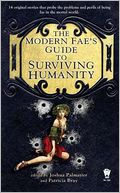 Anyway, today is the release of The Modern Fae’s Guide to Surviving Humanity
Anyway, today is the release of The Modern Fae’s Guide to Surviving Humanity 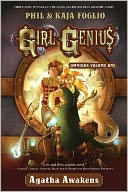 I have three books to talk about today, starting with the Girl Genius omnibus from Tor: Agatha Awakens
I have three books to talk about today, starting with the Girl Genius omnibus from Tor: Agatha Awakens 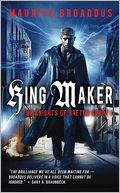 Next up is King Maker
Next up is King Maker 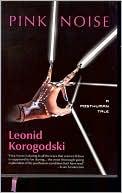 Finally, I want to talk about Pink Noise
Finally, I want to talk about Pink Noise 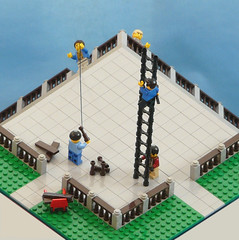

 When we think of Famous People, we’re generally not thinking about people. We’re thinking about the idea of those people, our mental constructs of the people who gave us a favorite show, movie, song, book, or whatever. Everything we love about their work gets imbued into this glowing icon of awesomeness.
When we think of Famous People, we’re generally not thinking about people. We’re thinking about the idea of those people, our mental constructs of the people who gave us a favorite show, movie, song, book, or whatever. Everything we love about their work gets imbued into this glowing icon of awesomeness.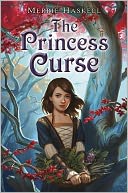 It’s two-for-one bookchat time, starting with The Princess Curse
It’s two-for-one bookchat time, starting with The Princess Curse 